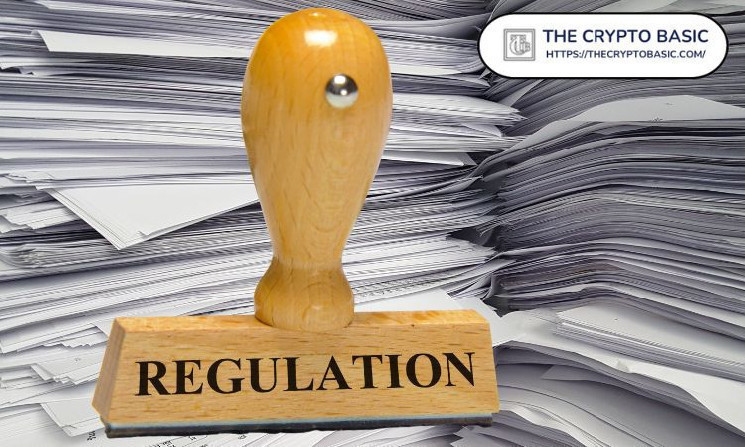CryptoLaw accuses the FDIC of criminally misplaced priorities amid crypto debanking debate.
Over the past few years, claims that federal banking regulators, particularly the Federal Deposit Insurance Corporation (FDIC), have intentionally put the squeeze on banks to cut the crypto industry off have been a raging topic amongst crypto proponents.
This issue has again come to the fore based on recent facts buried in a seemingly unrelated case.
Crypto Bad, but Russia Good?
CryptoLaw, a platform founded by pro-crypto lawyer John Deaton dedicated to sharing legal and regulatory updates surrounding the crypto industry, has accused the FDIC of criminally misplaced priorities.
In an X post on Thursday, January 9, the firm asserted that the banking regulator had allowed U.S. companies to send payments to Russia while freezing out legitimate crypto firms.
The @FDICgov abusively moved to choke off legitimate crypto companies but let a U.S. company send money to sanctioned Russian banks? (Damian v. @Deel, 1:25-cv-20017 S.D.Fla.) @FDIC_Exposed pic.twitter.com/ZAVIBcGgxl
— CryptoLaw (@CryptoLawUS) January 9, 2025
The basis for these claims lies in facts shared in a class action lawsuit against popular payroll and human resources firm Deel.
In the court documents, plaintiffs insinuate that Deel facilitated payments to users of Russia’s T-Bank despite existing sanctions against the Eastern European giant for its war against Ukraine. The plaintiffs do this by stating that T-Bank’s website had directed customers to receive payments via Deel as recently as October 2024.
While no evidence of transfers beyond this statement appears to have been provided, it has been enough to rally the crypto mob, who have been quick to call out the banking regulator, arguing a lack of balanced priorities.
Operation Chokepoint 2.0
The theory that crypto is being debanked in the U.S. started gaining momentum in early 2023, spurred mainly by the writings of crypto thought leader Nic Carter.
In February 2023, he argued that warnings from bank regulators about crypto risks in the wake of the FTX collapse had the markings of what he described as Operation Chokepoint 2.0.
He argued that banking regulators were trying to lock out the crypto industry from the banking sector through informal guidance like they tried to do payday lenders, arms dealers, and pornographers in 2013 in an initiative that was infamously dubbed Operation Chokepoint.
The disputes surrounding the shutdown of crypto-friendly banks like Signature Bank during the spate of bank runs in Q1 2023 at the time seemed to help support Carter’s view.
However, it took November 2024 statements from Andreessen Horowitz (A16Z) partner Marc Andreessen lamenting crypto debanking on the Joe Rogan Experience podcast to get the debate buzzing again.
Pause Letters
Further stoking the fire, Coinbase has recently obtained letters from the FDIC via a Freedom of Information Act request (FOIA) showing that the regulator had instructed banks to pause crypto services to customers pending the completion of regulatory reviews.
While Coinbase has wielded these documents as evidence of the crypto industry’s debanking claims, FDIC Chair Martin Gruenberg begs to differ.
In statements to Capitol Account co-writer Ryan Tracy, Gruenberg asserted that the FDIC’s instructions were aimed at discouraging banks from adding crypto to their balance sheets and were in no way aimed at the transactions of individual customers.
Read the full article here

